- Home
- H. Rider Haggard
Cleopatra
Cleopatra Read online
Produced by John Bickers; Dagny; Emma Dudding
CLEOPATRA
by H. Rider Haggard
DEDICATION
My dear Mother,
I have for a long while hoped to be allowed to dedicate some bookof mine to you, and now I bring you this work, because whatever itsshortcomings, and whatever judgment may be passed upon it by yourselfand others, it is yet the one I should wish you to accept.
I trust that you will receive from my romance of "Cleopatra" some suchpleasure as lightened the labour of its building up; and that itmay convey to your mind a picture, however imperfect, of the old andmysterious Egypt in whose lost glories you are so deeply interested.
Your affectionate and dutiful Son,
H. Rider Haggard.
January 21, 1889.
AUTHOR'S NOTE
The history of the ruin of Antony and Cleopatra must have struck manystudents of the records of their age as one of the most inexplicableof tragic tales. What malign influence and secret hates were at work,continually sapping their prosperity and blinding their judgment? Whydid Cleopatra fly at Actium, and why did Antony follow her, leaving hisfleet and army to destruction? An attempt is made in this romance tosuggest a possible answer to these and some other questions.
The reader is asked to bear in mind, however, that the story is told,not from the modern point of view, but as from the broken heart andwith the lips of an Egyptian patriot of royal blood; no merebeast-worshipper, but a priest instructed in the inmost mysteries, whobelieved firmly in the personal existence of the gods of Khem, in thepossibility of communion with them, and in the certainty of immortallife with its rewards and punishments; to whom also the bewildering andoften gross symbolism of the Osirian Faith was nothing but a veil wovento obscure secrets of the Sanctuary. Whatever proportion of truth theremay have been in their spiritual claims and imaginings, if indeed therewas any, such men as the Prince Harmachis have been told of in theannals of every great religion, and, as is shown by the testimony ofmonumental and sacred inscriptions, they were not unknown among theworshippers of the Egyptian Gods, and more especially of Isis.
Unfortunately it is scarcely possible to write a book of this nature andperiod without introducing a certain amount of illustrative matter, forby no other means can the long dead past be made to live again beforethe reader's eyes with all its accessories of faded pomp and forgottenmystery. To such students as seek a story only, and are not interestedin the faith, ceremonies, or customs of the Mother of Religion andCivilisation, ancient Egypt, it is, however, respectfully suggestedthat they should exercise the art of skipping, and open this tale at itsSecond Book.
That version of the death of Cleopatra has been preferred whichattributes her end to poison. According to Plutarch its actual manner isvery uncertain, though popular rumour ascribed it to the bite of an asp.She seems, however, to have carried out her design under the adviceof that shadowy personage, her physician, Olympus, and it is more thandoubtful if he would have resorted to such a fantastic and uncertainmethod of destroying life.
It may be mentioned that so late as the reign of Ptolemy Epiphanes,pretenders of native blood, one of whom was named Harmachis, are knownto have advanced their claims to the throne of Egypt. Moreover, therewas a book of prophecy current among the priesthood which declared thatafter the nations of the Greeks the God Harsefi would create the "chiefwho is to come." It will therefore be seen that, although it lackshistorical confirmation, the story of the great plot formed to stamp outthe dynasty of the Macedonian Lagidae and place Harmachis on the throneis not in itself improbable. Indeed, it is possible that many such plotswere entered into by Egyptian patriots during the long ages of theircountry's bondage. But ancient history tells us little of the abortivestruggles of a fallen race.
The Chant of Isis and the Song of Cleopatra, which appear in thesepages, are done into verse from the writer's prose by Mr. Andrew Lang,and the dirge sung by Charmion is translated by the same hand from theGreek of the Syrian Meleager.
CLEOPATRA

 The Ivory Child
The Ivory Child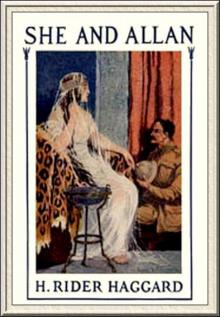 She and Allan
She and Allan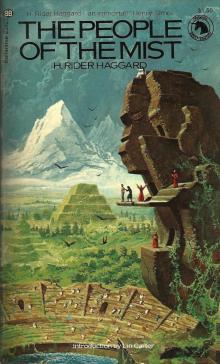 The People of the Mist
The People of the Mist She
She Morning Star
Morning Star King Solomon's Mines
King Solomon's Mines She: A History of Adventure
She: A History of Adventure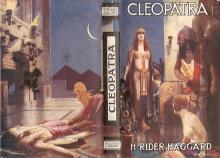 Cleopatra
Cleopatra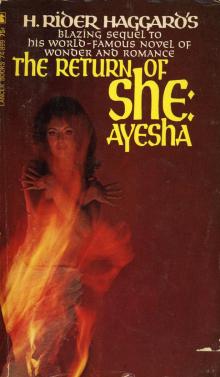 Ayesha, the Return of She
Ayesha, the Return of She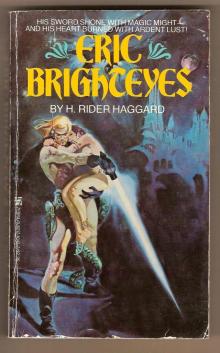 Eric Brighteyes
Eric Brighteyes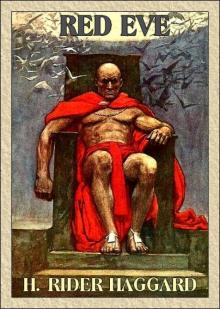 Red Eve
Red Eve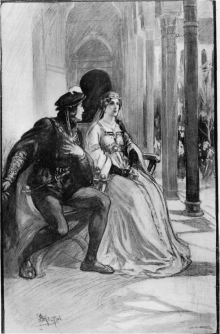 Fair Margaret
Fair Margaret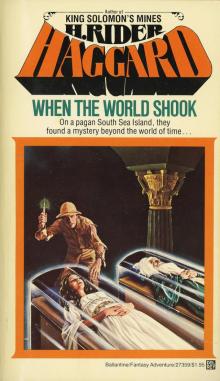 When the World Shook
When the World Shook Lysbeth, a Tale of the Dutch
Lysbeth, a Tale of the Dutch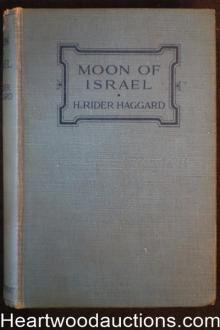 Moon of Israel: A Tale of the Exodus
Moon of Israel: A Tale of the Exodus Long Odds
Long Odds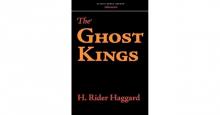 The Ghost Kings
The Ghost Kings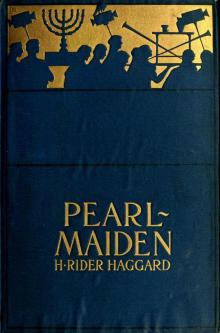 Pearl-Maiden: A Tale of the Fall of Jerusalem
Pearl-Maiden: A Tale of the Fall of Jerusalem Allan and the Holy Flower
Allan and the Holy Flower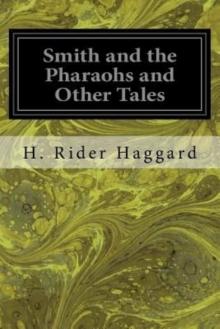 Smith and the Pharaohs, and other Tales
Smith and the Pharaohs, and other Tales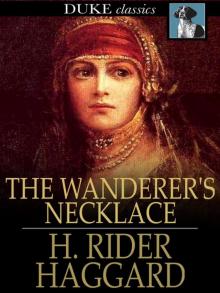 The Wanderer's Necklace
The Wanderer's Necklace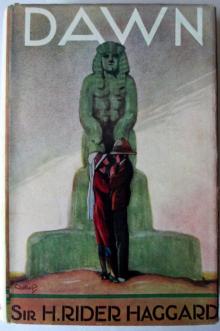 Dawn
Dawn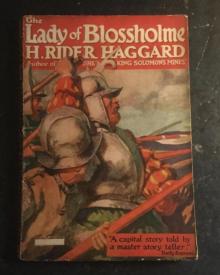 The Lady of Blossholme
The Lady of Blossholme Stella Fregelius: A Tale of Three Destinies
Stella Fregelius: A Tale of Three Destinies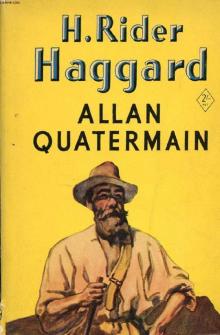 Allan Quatermain
Allan Quatermain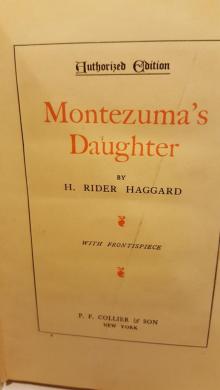 Montezuma's Daughter
Montezuma's Daughter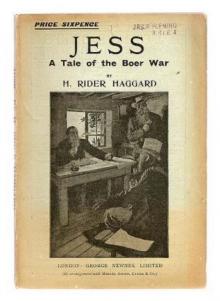 Jess
Jess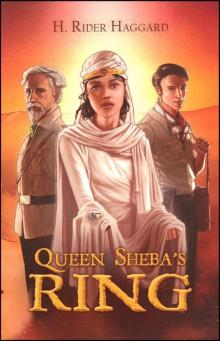 The Brethren
The Brethren Allan's Wife
Allan's Wife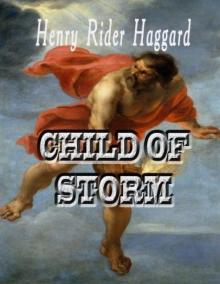 Child of Storm
Child of Storm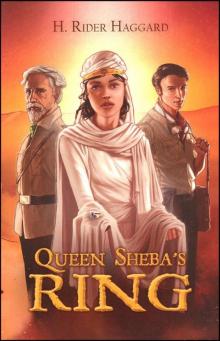 Queen Sheba's Ring
Queen Sheba's Ring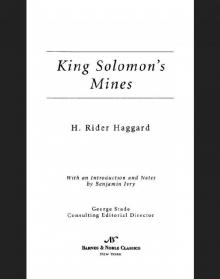 King Solomon's Mines (Barnes & Noble Classics Series)
King Solomon's Mines (Barnes & Noble Classics Series)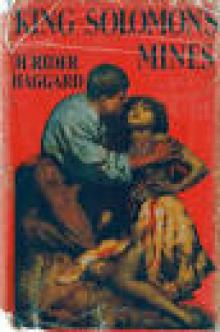 Complete Allan Quatermain Omnibus - Volumes 1 - 10
Complete Allan Quatermain Omnibus - Volumes 1 - 10